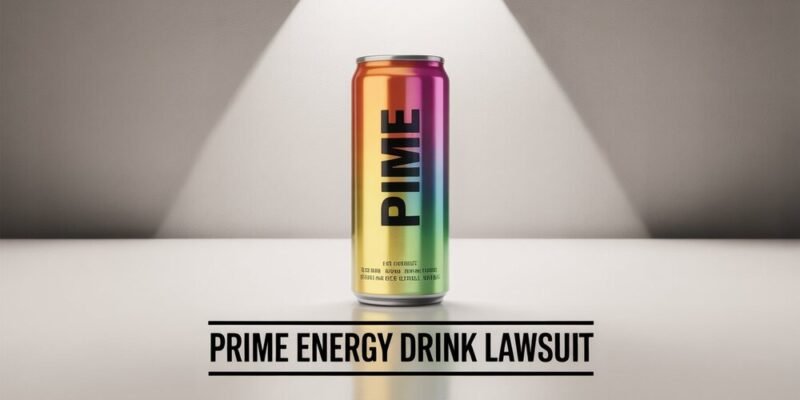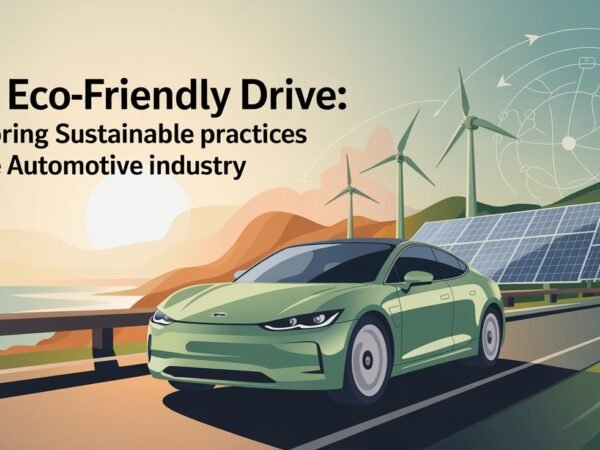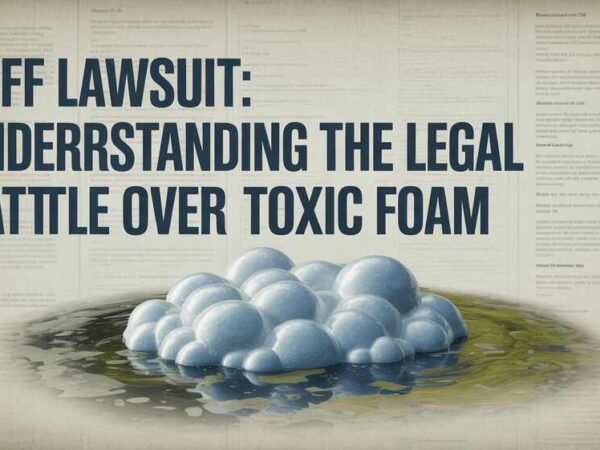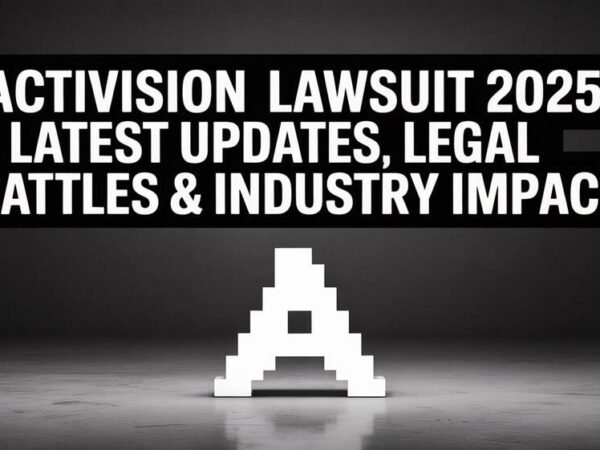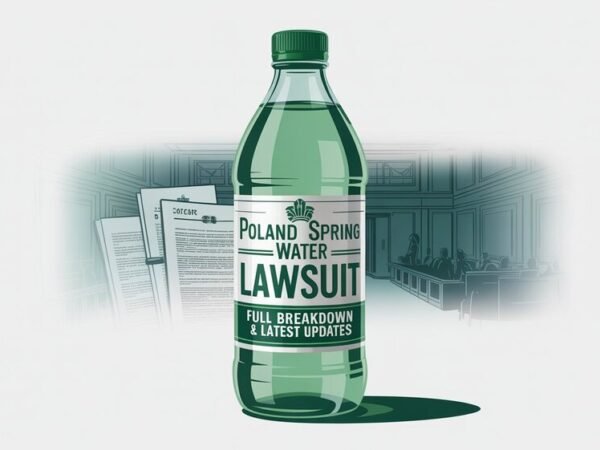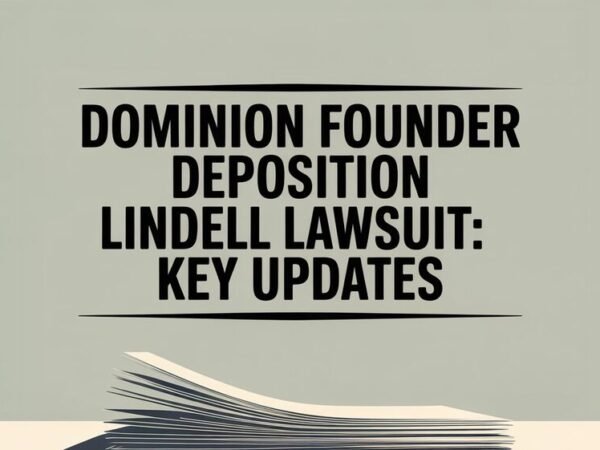Introduction
In recent years, the beverage industry has experienced a surge of influencer-backed brands, and few have made waves quite like Prime Hydration LLC. Founded by social media giants Logan Paul and KSI, Prime Energy Drinks gained rapid popularity among teens and young adults due to flashy marketing, bold flavors, and strong social media engagement. But in 2025, the spotlight has shifted from fame to controversy, as the company faces mounting legal scrutiny. The “prime energy drinks lawsuit” saga now encompasses many claims— from deceptive caffeine labeling and chemical contamination to trademark infringement and contractual disputes. This article explores Prime’s multifaceted legal battles, the potential implications for the broader energy drink market, and the ripple effects across the influencer branding landscape.
Lawsuit Over Excessive Caffeine Levels
One of the most significant legal challenges Prime Hydration is grappling with involves allegations surrounding the caffeine content of its popular energy drinks. In early 2025, a class-action lawsuit was filed in the Southern District of New York, accusing the brand of misleading consumers about the caffeine concentration in its beverages. Plaintiffs claim that Prime Energy contains up to 200mg of caffeine per can, a level considered potentially dangerous for adolescents, representing a significant portion of its consumer base.
The lawsuit alleges that Prime’s labeling downplays these levels and fails to provide adequate warnings, which could lead to unintended overconsumption. This concern is exacerbated by the drink’s colorful packaging and cartoonish branding, which many argue is specifically designed to appeal to minors. Health experts have weighed in, highlighting risks like insomnia, increased heart rate, and even cardiac arrest in vulnerable individuals. The situation drew political attention when Senator Chuck Schumer called for a full FDA investigation into Prime’s marketing practices, urging regulators to ensure the product is not being irresponsibly sold to children.
PFAS “Forever Chemicals” Controversy
Adding to the legal turmoil is a lawsuit filed in California that claims Prime Energy Drinks are contaminated with PFAS—per- and polyfluoroalkyl substances known as “forever chemicals.” These substances are synthetic compounds that do not break down in the environment and can accumulate in the human body over time, leading to serious health issues like cancer, liver damage, and immune system disorders.
The lawsuit, initiated by consumer Elizabeth Castillo, targets explicitly the Grape-flavored Prime Hydration drink, alleging it contains detectable levels of PFAS. According to the filing, Prime misled customers by advertising its drinks as healthy and hydrating while omitting mention of these toxic substances. Environmental watchdog groups have since echoed the claims, further amplifying public concern. If substantiated, this could be a significant blow to Prime’s reputation, especially given the rising consumer demand for clean-label and non-toxic products.
Trademark Infringement by Olympic Committee
In a separate but equally significant legal case, Prime Hydration is sued by the U.S. Olympic and Paralympic Committee (USOPC) for unauthorized use of protected trademarks. The lawsuit asserts that Prime used Olympic-associated phrases such as “Olympian,” “Team USA,” and “Going for Gold” in its marketing materials without obtaining proper licensing. The USOPC maintains strict control over its intellectual property, arguing that misuse can mislead consumers into believing an official endorsement or partnership is in place.
This claim raises substantial risks for Prime, as it jeopardizes its existing marketing assets and could result in hefty financial penalties. Furthermore, any judgment favoring the USOPC may restrict Prime from using similar language or themes in future campaigns, which could impact its ability to resonate with audiences during major global sporting events.
$67M Contract Breach with Refresco
Prime’s legal issues extend into business operations with a lawsuit filed by Refresco, a significant beverage manufacturing company. Refresco is suing Prime Hydration and its parent entity, Congo Brands, for an alleged breach of a supply contract valued at over $67 million. The claim centers on Prime’s failure to meet minimum purchase commitments, which Refresco says caused significant financial losses and operational disruptions.
This lawsuit has broader implications for Prime’s production and distribution capabilities. If the court sides with Refresco, Prime could be liable for damages and forced to renegotiate supplier agreements under more stringent terms. Supply chain instability could also lead to product shortages on store shelves, further eroding consumer confidence.
Market Reactions and Public Backlash
The growing list of lawsuits has sparked widespread consumer backlash and market uncertainty. Users have begun questioning the integrity of Prime’s ingredients and business practices on platforms like Twitter, TikTok, and Reddit. Some former fans have gone as far as boycotting the brand, while others call for increased regulation of influencer-backed consumables.
Influencer partners, too, have started to distance themselves from the brand, wary of being entangled in negative publicity. Retailers are reportedly reviewing their partnerships with Prime, especially in schools and youth-oriented stores. Meanwhile, competitors like Gatorade, Celsius, and Monster capitalize on the chaos, launching ad campaigns emphasizing transparency and health-conscious formulations. These reactions show that legal battles are not just confined to courtrooms—they have real-world ramifications that ripple through market dynamics and consumer behavior.
Legal and Regulatory Implications for Energy Drinks
The “prime energy drinks lawsuit” has become a flashpoint in the more significant energy drink safety and marketing debate. Public health advocates push more explicit labeling requirements, including mandatory caffeine disclosures and age-based warnings. Lawmakers are also considering legislation to limit the sale of highly caffeinated beverages to minors.
If these regulations materialize, the energy drink landscape could substantially transform. Smaller companies struggle to adapt, while established brands might need to overhaul their marketing strategies. The Prime lawsuits thus serve as a potential turning point for industry norms and standards, especially concerning transparency, safety, and age-appropriate branding.
Brand Response and Public Statements
Prime Hydration has issued statements denying wrongdoing in response to the escalating legal issues. The company claims its products meet all safety regulations and that recent lawsuits are “baseless and opportunistic.” It also asserts that third-party lab tests have not confirmed any PFAS contamination.
Critics argue that Prime’s responses have been vague and insufficient despite these assurances. Many call for more transparent disclosures, independent audits, and proactive regulatory engagement. If the brand fails to address these concerns convincingly, it risks long-term reputational damage that could be difficult to recover from.
Conclusion & Future Outlook
The unfolding “prime energy drinks lawsuit” narrative highlights a complex web of health concerns, legal accountability, and influencer responsibility. What began as a viral beverage backed by digital celebrities has evolved into a cautionary tale for the entire food and beverage sector. With multiple lawsuits pending, potential regulatory reforms looming, and public sentiment shifting, the future of Prime Hydration hangs in the balance.
For consumers, especially parents and young buyers, the lawsuits remind them to scrutinize what they consume and how it’s marketed. For brands, it’s a lesson in the perils of prioritizing hype over health. And for the industry, Prime’s legal battles could catalyze long-overdue changes in transparency, safety standards, and ethical marketing practices.
In 2025, Prime may either emerge as a reformed leader in the energy drink space or a case study in branding gone wrong. Only time and the courts will decide.
Do Read: Smartmatic Lawsuit: A Defining Moment in the Battle Over Misinformation and Media Accountability


